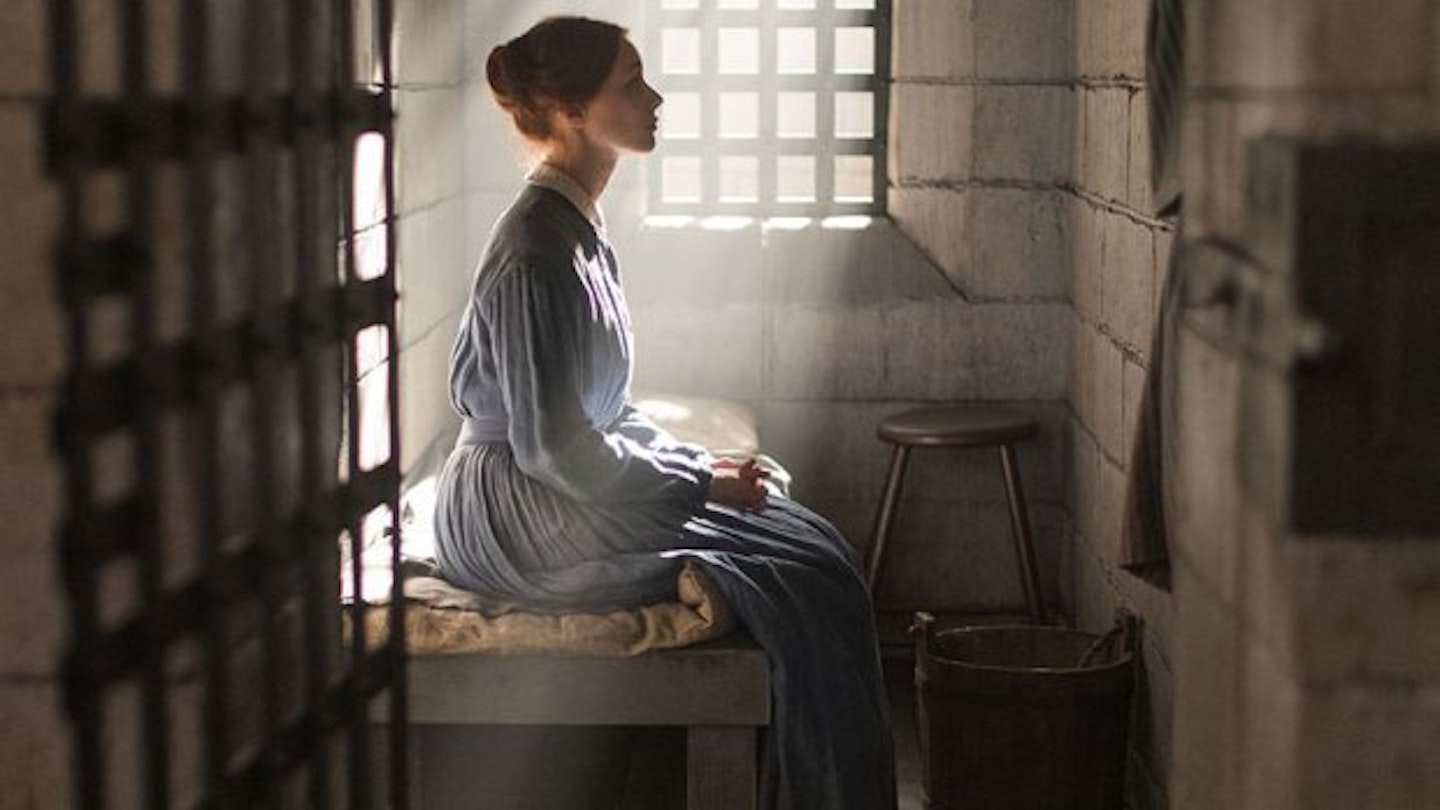‘I’d rather be a murderess than a murderer, if those were the only choices’, Grace Marks reflects. It’s 1859, fifteen years since 16-year-old Grace was imprisoned for killing two people. The primary mystery is, of course, whether or not Grace actually committed the crimes she’s being punished for. While Grace herself doesn’t seem sure, the men in high places on either side of the fence are certain in their views. But the eerily poignant theme that bubbles beneath the surface of Alias Grace is Grace’s story itself, and why the only legitimacy given to it comes from male figures of authority whose experiences quite literally could differ any further from the female protagonist’s.
Alias Grace is this year’s second Margaret Atwood adaptation (on Netflix this time around as opposed to Hulu and Channel 4) to wipe out our weekends. It’s had us engrossed and admittedly a little shaken by the dystopian sentiment that, much like The Handmaid’s Tale, resonates a little too well.
The Alias Grace Trailer
Through a series of interviews with Dr Simon Jordan and Grace’s narration, we learn about how Grace travelled from Ireland to Canada as a young girl, watched her mother dies, left her younger brothers and sisters and abusive father to become a servant and earn her own money, and eventually find herself locked up at Kingston Penitentiary for two murders that she didn’t necessarily commit.
Grace was robbed of her voice until Dr Jordan came along to give her one (in the confines of one on one interviews where Grace sat and sewed as she spoke, a reminder of her place despite the brief permission to speak).
Her final testimony when on trial for the murders was what she was told to say by her evidently male lawyers. She was branded mentally sick – something which was more of an attraction to behold rather than an illness back then – because, how else could one rationalise the actions of a woman who was so young and beautiful? And after years of living under the silent pretence of sexual abuse, when she’s sent to an asylum before ending up at Kingston Penitentiary, Grace is abused by her carers there too.
Alias Grace is as brilliant as it is a frightening reminder of the toxic nature of the relationship between power, sex and class in the 19th century. There’s no question of its binge-worthiness, nor the frustrating determination you’ll feel on the journey to trying to figure out who actually committed the murder. But the series also echoes questions that have been cropping up in more recent conversations about sexual harassment in 2017. As a woman, why does fear and mistrust prevail above the confidence that you’ll actually be listened to and believed?
WATCH: The Debrief Meets Jerry Buting From Making A Murderer
Alias Grace Is A True Story
spoilers, tread carefully
The six-part miniseries on Netflix is an adaptation of Margaret Atwood’s novel of the same name. Margaret’s novel was based on the true story of a murder case that did really happen back in the 1800s and yes, Grace Marks was indeed a real person.
When she made it over to Canada from Ulster where she was born, Grace was eventually employed by a rich farmer (Thomas Kinnear) who had a housekeeper-cum-mistress called Nancy and a stablehand called James McDermott. Nancy and Thomas Kinnear’s bodies were found at the farm and Grace and James McDermott were then arrested after trying to run away to America together.
Given that Grace was so young at the time, the story of the murders became a huge deal and was widely spoke about at the time. The bit about Grace having given various different testimonies is apparently true, as is the Netflix depiction of her having been sent to an asylum before winding up at Kingston penitentiary.
Like this? You might also be interested in…
Follow Jazmin on Instagram @JazKopotsha
This article originally appeared on The Debrief.
